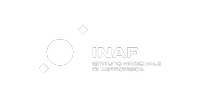DARKLIGHT
Galaxy redshift surveys have been central in establishing the current successful cosmological model. Reconstructing the large-scale distribution of galaxies in space and time, they provide us with a unique probe of the basic constituents of the Universe, their evolution and the background fundamental physics. A new generation of even larger surveys is planned for the starting decade, with the aim of solving the remaining mysteries of the standard model using high-precision measurements of galaxy clustering. These entail the nature of the “dark sector” and in particular the origin of the accelerated cosmic expansion. While data accumulation already started, the needed analysis capabilities to reach the required percent levels in both accuracy and precision are not ready yet. I propose to establish a focused research group to develop these tools and optimally analyze the new data, while being directly involved in their collection. New techniques as redshift-space distortions and well-known but still debated probes as galaxy clusters will be refined to a new level. They will be combined with more standard methods as baryonic acoustic oscillations and external data as CMB anisotropies. Performances will be validated on mock samples from large numerical simulations and then applied to state-of-the-art data with enhanced control over systematic errors to obtain the best achievable measurements. These new capabilities will be decisive in enabling ongoing and future surveys to tackle the key open problems in cosmology: What is the nature of dark energy? Is it produced by an evolving scalar field? Or does it rather require a modification of the laws of gravity? How does it relate to dark matter? What is the role of neutrinos? The answer to these questions may well revolutionize our view of physics.
Dettagli tecnici
Struttura: INAF OA Brera
Bando: ERC-2011-ADG
Riferimento contratto: n. 291521
Inizio: 01/05/2012
Durata: 60 mesi
Coordinamento: INAF OA Brera

